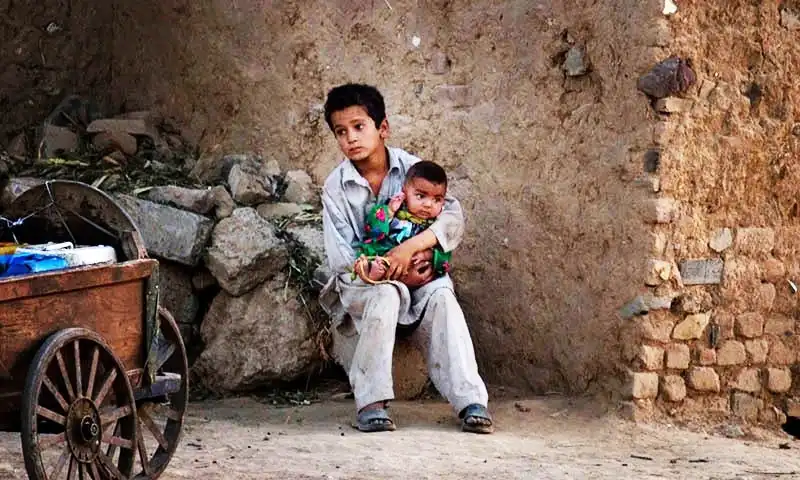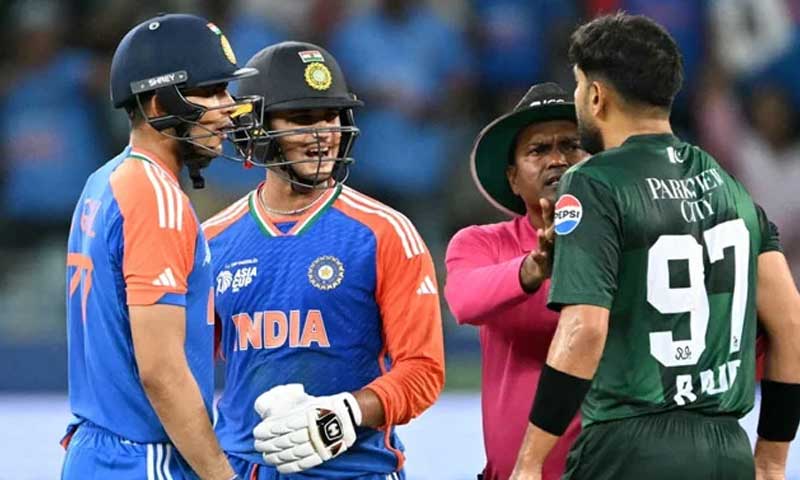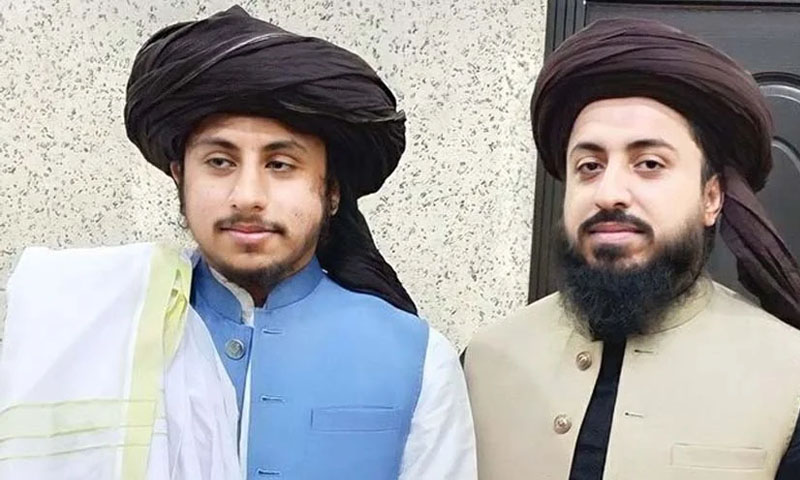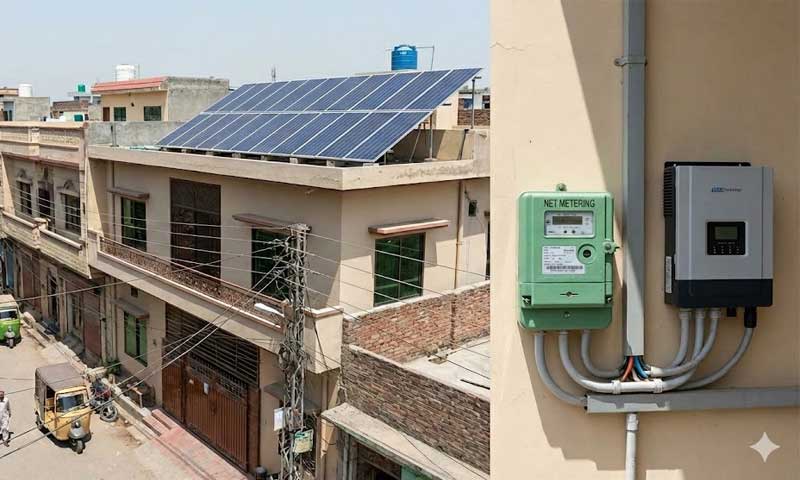- Web Desk
- 6 Hours ago
Iran to rebuild stronger nuclear sites, Israel to go after Hezbollah
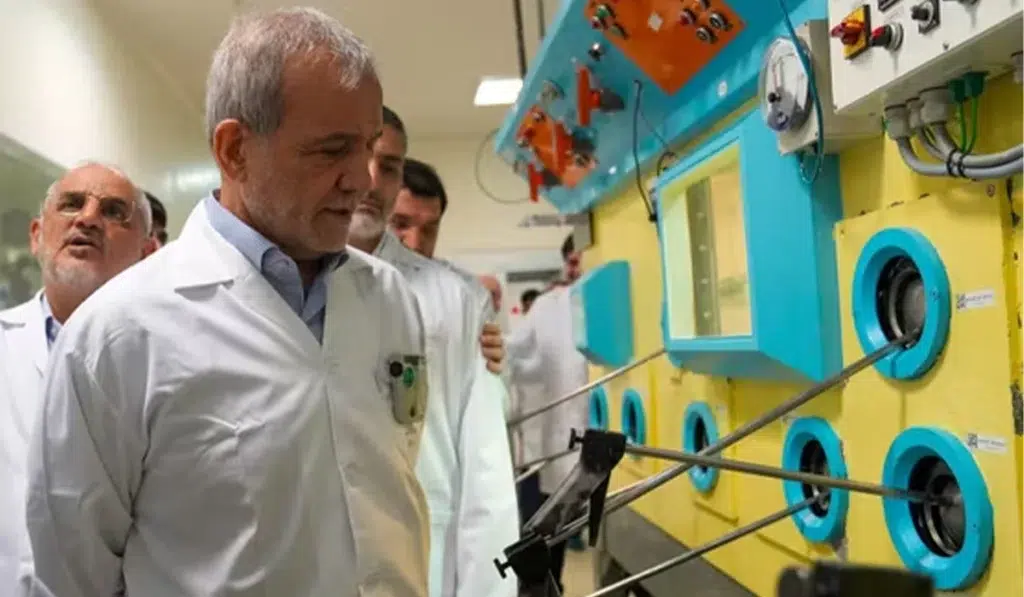
TEHRAN/JERUSALEM: Iran said on Sunday that it would rebuild nuclear sites damaged by Israeli and US strikes “stronger than before”, as mediator Oman urged Tehran and Washington to revive stalled diplomacy, while Israel warned to step up attacks against Hezbollah in southern Lebanon.
Read more: Dar to attend Gaza peace plan review meeting in Istanbul
US President Donald Trump has said the strikes obliterated Iran’s nuclear programme, but the full extent of the actual damage remains unknown.
Iranian President Masoud Pezeshkian, in a visit to the country’s nuclear organisation, said Tehran “will build (the destroyed sites) stronger than before”.
“By destroying buildings… we will not be set back,” he said in a video posted to his official website, adding that Iranian scientists still had the necessary nuclear know-how.”
Pezeshkian did not elaborate. In similar remarks in February before the strikes, he said Tehran would rebuild its sites if they came under attack.
Israel launched an unprecedented bombing campaign against Iran in June, kicking off a 12-day war that saw it target nuclear and military facilities — as well as residential areas — and kill many top scientists.
Iran retaliated with ballistic missile barrages aimed at Israeli cities.
Iranian Foreign Minister Abbas Araghchi said in July, after the United States announced a halt in fighting, that the damage in Iran was “serious and severe”.
‘RETURN TO THE NEGOTIATIONS’
Pezeshkian’s comments came as Oman, Iran’s traditional intermediary, urged the two countries on Saturday to resume talks.
Read more: Iran won’t accept nuclear talks that cause ‘new problems’: Pezeshkian
“We want to return to the negotiations between Iran (and) the United States,” Omani Foreign Minister Badr Albusaidi said at the IISS Manama Dialogue conference in Bahrain.
Iranian government spokeswoman Fatemeh Mohajerani said Sunday that Tehran “has received messages” on resuming diplomacy, without providing further details.
Oman hosted five rounds of US-Iran talks this year. Just three days before the sixth round, Israel launched its strikes against Iran’s nuclear facilities.
Iran has since faced the return of UN sanctions after Britain, Germany and France triggered the “snapback” mechanism over Tehran’s alleged non-compliance with the 2015 nuclear deal.
INTENSIFYING ATTACKS ON HEZBOLLAH
Israel gave the latest warning a day after the Lebanese health ministry reported four people killed in an Israeli air strike.
Despite a November 2024 ceasefire with the Lebanese group, Israel maintains troops in five areas in southern Lebanon and has kept up regular strikes.
“Hezbollah is playing with fire, and the president of Lebanon is dragging his feet,” Defence Minister Israel Katz said in a statement.
Read more: Hezbollah to resist ‘US-Israel project’, Lebanon PM slams ‘threats’
“The Lebanese government’s commitment to disarm Hezbollah and remove it from southern Lebanon must be implemented. Maximum enforcement will continue and even intensify — we will not allow any threat to the residents of the north.”
Similarly, Prime Minister Benjamin Netanyahu said that Hezbollah was attempting to “rearm” itself.
“We expect the Lebanese government to fulfil its commitment — to disarm Hezbollah — but it is clear we will exercise our right of self-defence under the terms of ceasefire,” Netanyahu told the cabinet at its weekly meeting on Sunday.
In a statement issued by his office, Netanyahu said, “We will not allow Lebanon to become a renewed front against us, and we will act as necessary.”
DISARM HEZBOLLAH
In September 2024, Israel killed the group’s longtime chief, Hassan Nasrallah, along with many other senior leaders over the course of the war.
Since the ceasefire, the United States has increased pressure on Lebanese authorities to disarm the group, a move opposed by Hezbollah and its allies.
Read more: US envoy hails ‘historic’ decision on Hezbollah disarmament
The Lebanese government has drawn up a plan to impose a state monopoly on weapons, and said the army has begun implementing it, starting in the country’s south.
Israel never stopped carrying out air strikes in Lebanon in spite of the truce — usually saying it is targeting Hezbollah positions — and has stepped up the attacks in recent days.
On Thursday, Israeli ground troops carried out a deadly raid into southern Lebanon, prompting Lebanese President Joseph Aoun to order the army to confront such incursions.
Aoun had called for talks with Israel in mid-October, after US President Donald Trump helped broker a ceasefire in Gaza.
But Aoun later accused Israel of responding to his offer by intensifying its strikes, the latest of which killed four people in Nabatiyeh district on Saturday, according to the Lebanese health ministry.
The official Lebanese National News Agency reported that the Israeli army hit a car “with a guided missile”.


